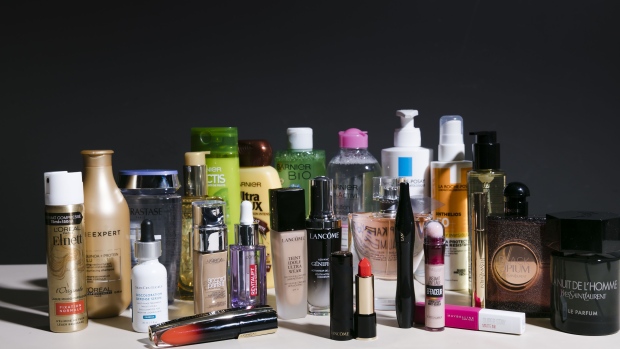Jun 1, 2023
EU Raises Alarm Over Chinese Demands for Cosmetics Trade Secrets
, Bloomberg News

(Bloomberg) -- The European Union has raised concerns with China about the detailed product information that cosmetics companies like L’Oreal and LVMH have to provide in order to sell their goods in the country.
China is phasing in rules making cosmetics firms supply data spanning from ingredients to details of manufacturing processes, the sourcing of raw materials, and the precise composition of formulas. Much of the information is collected and stored in a database managed by Chinese authorities.
The main concern for European companies is that they may be forced to surrender trade secrets under the guise of product safety, according to people familiar with the situation, who asked not to be identified discussing confidential information. These concerns have been raised at the highest levels in recent discussions between the EU and China, said one EU official, who also requested anonymity.
The range of information companies are asked to share goes significantly beyond most other markets, according to industry experts. Compared with the EU, China’s rules — which also apply to domestic firms — are much more intrusive, with authorities requiring companies to submit crucial information on the country’s data servers. In the EU, the data is handled by the companies themselves.
The process to comply with the new regime is also very time consuming and requires more resources, the experts said. At the same time, they acknowledge that EU companies have little choice but to comply with the regulations given the massive size of the Chinese market and its importance to their businesses.
There is “an extreme level of granularity” in the disclosure requirements, Gerald Renner, a director of technical regulatory and international affairs at the Brussels-based Cosmetics Europe lobby, said in an interview.
There are concerns that they could provide China with “very detailed information about the blueprint of the cosmetic product,” he added.
Cosmetics Europe’s members include L’Oreal SA and Christian Dior owner LVMH Moet Hennessy Louis Vuitton SE among other beauty groups. Representatives for L’Oreal and LVMH declined to comment. China’s National Medicinal Products Agency didn’t respond to a request for comment.
There is no evidence or indication to suggest that China is using the information it collects from cosmetics companies for malign purposes.
While market leader L’Oreal doesn’t break down its revenue in China, North Asia was its second biggest region after Europe, generating more than a quarter of its €38.3 billion sales ($40.8 billion) last year.
That illustrates the challenge faced by many companies in the industry, as well as other manufacturing sectors, which need to balance doing business in China with evolving geopolitical developments. Beyond the cosmetics sector, the EU and its allies have been working to cut their broader exposure to China and mitigate supply chain dependencies, especially when it comes to sourcing raw materials.
Faced with an increasingly assertive government in Beijing, the EU set out a strategy earlier this year to boost the production of materials seen as key to the green transition. Allies have also been looking to curb investment risks and control exports of some cutting-edge technologies to China.
The EU, and the US even more so, have long complained that certain policies and practices in China could lead to the transfer of technologies and intellectual property.
The need to disclose additional information can also be seen as stealth protectionism as many more resources are needed to abide by those rules, according to one industry expert. This level of disclosure amounts to handing over manufacturing secrets, the person said.
Cosmetics Europe’s Renner said there’s no evidence that intellectual property theft has taken place but cautioned that “any company would be concerned that its trade secrets could be made available” to competitors. “We hope for the best,” he said.
--With assistance from Alan Katz.
©2023 Bloomberg L.P.






